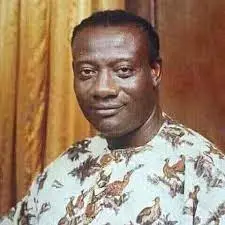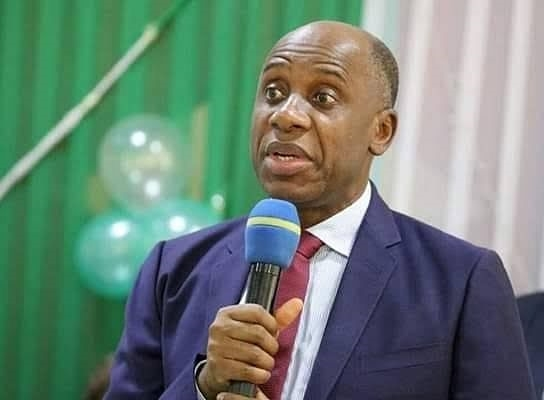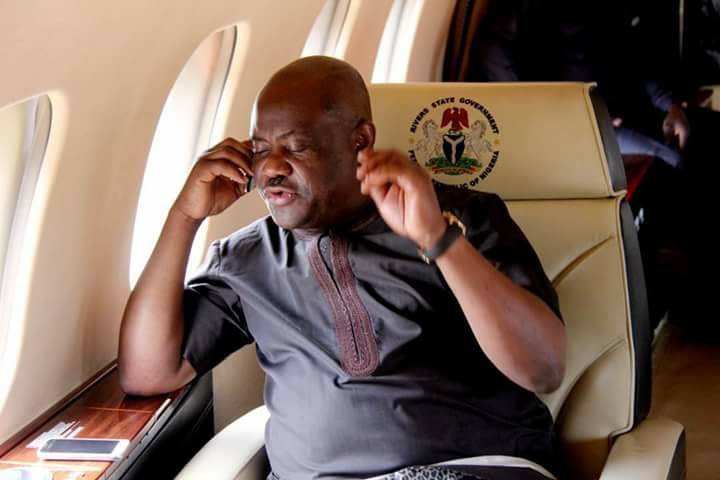The first executive governor of Rivers was Melford Obiene Okilo while the incumbent governor of the state is Siminalayi Fubara.
There have been 17 governors in Rivers State since the creation of the state in 1967: 10 of them were military administrators while 7 became governor through a democratic process.
Rivers State Military Governors From 1967 To May 1999
- Alfred Diete-Spiff: May 28, 1967 – July 1975
- Zamani Lekwot: July 1975 – July 1978
- Suleiman Saidu: July 1978 – October 1979
- Fidelis Oyakhilome: January 1984 – August 26, 1986
- Anthony Ukpo: August 26 1986 – July 1988
- Ernest Adelaye: July 1988 – August 1990
- Godwin Abbe: August 1990 – January 1992
- Dauda Musa Komo: December 9, 1993 – August 22, 1996
- Musa Shehu: August 22, 1996 – August 1998
- Sam Ewang: August 1998 – May 1999
Who is the first civilian governor of Rivers?
- Melford Obiene Okilo: October 1979 – December 1983
Okilo became the governor of Old Rivers at 46. He was elected Member of Parliament at 23 (1956 – 1964) during the First Republic.

By the time Nigeria returned to a democratic rule – Second Republic – Okilo was elected the first Executive Governor of old Rivers State in 1979 under the National Party of Nigeria (NPN).
He won re-election, but the military junta of December 31, 1983, truncated the democratic process.
He briefly served as the Minister of Commerce and Tourism between December 1993 to July 1994 during Abacha’s military junta.
Upon return Nigeria’s return to democracy again in 1999, Okilo was a member of PDP and won represented Bayelsa East as a Senator between May 1999 to 2003.
Governor During The Aborted Third Republic
- Rufus Ada George (January 1992 to November 1993)
Under the administration of Chief Okilo, Ada George was the Secretary to the Rivers State Government. He would later contest and be elected on the National Republican Convention (NRC) platform as Governor of Rivers State while General Ibrahim Babangida coined the Military President title for himself.
George’s deputy governor was Peter Odili, who was elected governor in 1999 under the Peoples Democratic Party (PDP).
Ada George’s tenure came to a halt when General Sani Abacha took power in a military coup in November 1993.
Rivers State Governors From 1999 To Date
- Peter Odili: May 29, 1999 – May 29, 2007
- Celestine Omehia: May 29, 2007 – October 26, 2007
- Chibuike Amaechi: October 26, 2007 – May 29, 2015
- Ezenwo Wike: May 29, 2015 – May 29, 2023
- Siminalayi Fubara: May 29, 2023 –
Age of The Civilian Governors When They Assumed Office
- Okilo, the first civilian governor was 46
- George became governor at 52
- Odili was 51 when he was sworn in as the governor
- Omehia became governor at 48
- Amaechi became governor at 41
- Wike was 48 when he became the governor of Rivers
- Fubara succeeded Wike as Rivers Governor at 48
NOTE: Amaechi had never been out of government since 1999 until May 29, 2023. He has the most shining political career as the governor of Rivers State, with the following political credentials:

- 1999 – 2007: Speaker, Rivers House of Assembly
- 2007 – 2015: Governor of Rivers
- 2015 – 2023: Minister of Transport
He contested the primaries of the 2023 presidential election under the All Progressive Congress (APC), losing to the incumbent President Bola Tinubu.
Rotation of Power Among The Executive Governors
- Ada George was the Secretary to the State Government during Okilo’s tenure in 1979
- Odili was Deputy Governor to Rufus Ada George in 1992
- Omehia was Executive Assistant to Governor Peter Odili. Before then, Omehia was the Education Commissioner under Ada George’s tenure in 1992.
- Amaechi was the Head of the Rivers’ Legislative Arm (Speaker of Rivers State’s House of Assembly) when Odili was the Head of the Executive Arm (governor) between 1999 to 2007
- Wike was Amaechi’s Chief of Staff to Amaechi before things fell apart between them
- Fubara was Wike’s Accountant-General before they became cat-and-mouse
Conclusion
The rotation of power among state governors in Rivers is the most interesting one in Nigeria’s politics. The power has never left the circle of the same cabal who have been ruling the oil-rich state since 1999.


